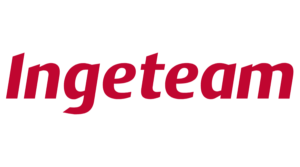 Spanish manufacturer Ingeteam will expand capacity at its Milwaukee plant, creating 100 jobs producing electric vehicle charging stations as the U.S. advances ambitious plans to build out a national charging network.
Spanish manufacturer Ingeteam will expand capacity at its Milwaukee plant, creating 100 jobs producing electric vehicle charging stations as the U.S. advances ambitious plans to build out a national charging network.
The development points to Wisconsin’s growing promise as a critical manufacturing hub in the nation’s quickly expanding energy future, which was detailed in a recent WEDC report.
“This significant investment, in addition to the more than $20 million already invested in our cutting-edge manufacturing plant since 2010, will add up to 100 new well-paying jobs to the region, and to our production facility in Milwaukee over the next five years,” said Jesus Rodriguez, executive vice president of Ingeteam EV Chargers USA.
Ingeteam will increase production of DC Fast Chargers and L2EV chargers for the U.S. market at its existing plant. The fast chargers will be Buy America-compliant and will meet the requirements of the National Electric Vehicle Infrastructure program.
The company’s new EV production lines in the U.S. will produce up to 13,000 units annually, helping to deploy a network of 500,000 units along America’s highways to support EV use and combat climate change.
“We’re grateful that Ingeteam has recognized the talent and strength of our workforce and we’re excited to have these fast and ultra-fast chargers for electronic vehicles built right here in Wisconsin,” said Missy Hughes, secretary and CEO of WEDC.
Ingeteam received $4.5 million in tax credits and a $500,000 loan from the state in conjunction with the decision to open its Milwaukee facility. The company also received $1.66 million in clean technology manufacturing tax credits from the federal government and additional assistance from the City of Milwaukee.
Local officials also applauded the company’s expansion of production as a boost to the economy that positions the state to take a heightened role in advancing clean energy initiatives.
“Ingeteam’s new production line in Milwaukee is good news in multiple ways. It helps advance this country’s environmental goals, it expands the company’s manufacturing capabilities in our city, and it adds good jobs to our community,” Milwaukee Mayor Cavalier Johnson said.
Jim Paetsch, executive director of the Milwaukee 7 regional economic development organization, agreed the expansion will boost the area economy and help provide the EV infrastructure the nation needs.
“The company is well-positioned to serve the evolving energy needs of our country and the rest of the world,” Paetsch said. “The renewable energy future is here, and it’s being propelled by the products and technologies imagined and engineered by shining stars like Ingeteam.”
A WEDC report released in March identified a “tremendous opportunity” for the state to develop a globally competitive cluster centered on the development of EVs and related equipment, helping to revitalize Wisconsin’s automotive manufacturing industry.
“For Wisconsin to develop a thriving and dynamic EV manufacturing cluster, the state will need to mobilize its immense base of assets and coordinate its activities and investments in a way that produces sustainable growth conditions for the industry,” the report says.
The report, commissioned by WEDC and produced by SRI International, notes that Wisconsin’s automotive suppliers are less vulnerable to the disruption caused by a shift to EVs because they manufacture components for both internal combustion and EV products.
Most of the state’s larger automotive suppliers are already adapting to the EV transition, but the report recommended that the state assist smaller suppliers in making this transition.
The report also detailed a strategy for sustained growth in the EV sector. Its recommendations included:
- Enhancing productivity through modernization and upskilling
- Scaling up the state’s middle-skill worker pipeline by investing in worker training through the Wisconsin technical college system
- Increasing manufacturers’ access to regional, national, and global EV markets
- Building connections between Wisconsin innovators and the EV industry
- Aligning EV policymaking with state economic development interests
- Preparing for the future of mobility and sustainability
Ingeteam’s decision to expand production is one of the puzzle pieces that will help drive the strategy forward.
“Wisconsin has a remarkable opportunity to use our renowned advanced manufacturing and research capabilities to lead the U.S. and the world in creating and building clean energy technologies,” said Hughes.
